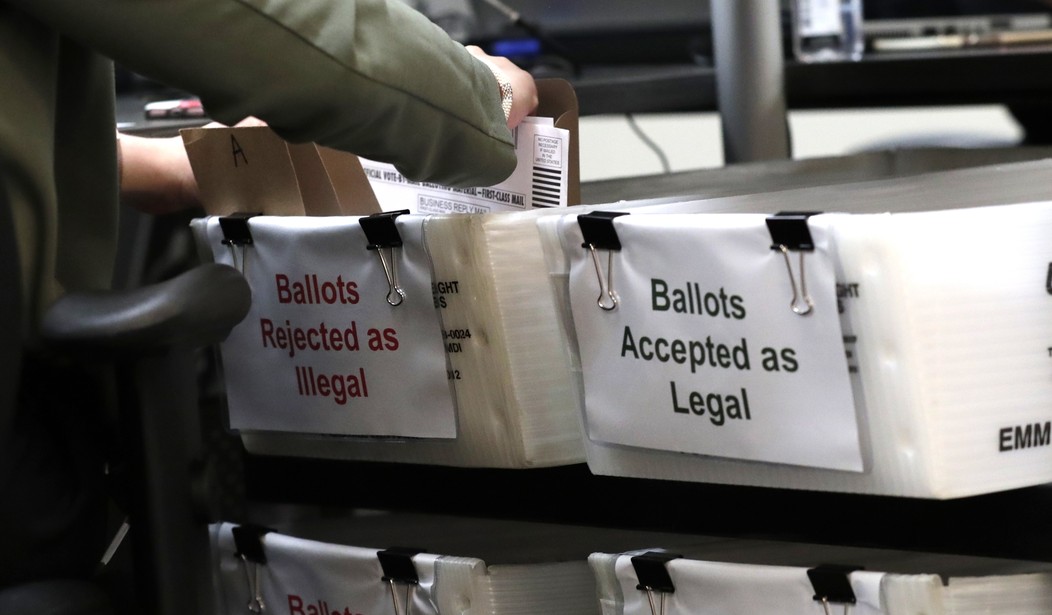
——-
This is one of those political stories you couldn’t make up if you tried.
Two years ago, North Carolina found itself smack-dab in the middle of a scandal involving allegations of absentee ballot fraud in the 9th Congressional District race. McCrae Dowless was indicted on multiple charges stemming from illegal “ballot harvesting” efforts that state elections officials say gave Republican candidate Mark Harris an advantage in the 2018 race over Democrat Dan McCready.
Harris denied any knowledge of Dowless’ actions, and also declined to run again for the seat. A special election was held in September 2019, where state senator Dan Bishop (R) defeated McCready despite the national/local media’s and left’s best efforts to boost McCready’s candidacy.
A month after Bishop was elected, the state legislature, which is controlled by Republicans, passed an overwhelmingly bipartisan bill on absentee ballot fraud as a direct response to what happened in District 9. Gov. Roy Cooper (D) signed it into law.
Fast forward a few months later, and national Democratic Party lawyer Marc Elias, who represented McCready after the NC-9 fraud was alleged, turned around and filed a lawsuit against the state on behalf of a group called “Advance North Carolina”, claiming the absentee ballot fraud bill passed by Republicans and Democrats and signed into law by Cooper was too harsh and “unnecessarily burden[ed]” voters who plan to vote by absentee ballot.
I kid you not.
Interestingly enough, on March 11 — exactly a week after the Elias lawsuit was filed — NC Board of Elections Executive Director Karen Brinson Bell (D) tried to get the NC Rules Review Commission to approve an expansion of her “emergency powers”, citing the coronavirus pandemic. In May, the board unanimously rejected her request.
Two weeks after she made that request, Brinson Bell tried to get the state legislature to “reduce or eliminate the witness requirement” for absentee ballots. State legislators opted to change the witness requirement from 2 to 1 rather than eliminate it altogether, while also approving more money to go to local election boards for security upgrades and personal protective equipment.
In May, another lawsuit related to the absentee ballot reforms law was filed by two more left-wing groups: Democracy North Carolina and the League of Women Voters of North Carolina. Like Brinson Bell and the Elias lawsuit, the group had issues with the two-witness requirement for absentee ballots, calling it “unconstitutional.”
In early August, a federal judge rejected most of the changes demanded by Democracy NC and the NC League of Women Voters, including the witness requirement and the ability for voters to “leave completed ballots in ‘no-contact’ boxes.”
Here’s what happened after that, according to a statement from Sen. Leader Phil Berger (R):
On August 18, national Democrats [led by Marc Elias] filed a different lawsuit to change election laws in the way Brinson Bell advocated.
On August 28, 2020, Gov. Roy Cooper filed suit to change the composition of the Rules Review Commission to give himself power.
On September 3, a three-judge panel of state judges rejected national Democrats’ attempt to change election laws in the way Brinson Bell advocated.
On September 22, in an apparent move of last resort, Brinson Bell and the partisan Board of Elections agreed to a collusive settlement they’d secretly negotiated with national Democrats to change election laws in the way Brinson Bell had long advocated.
There are five members on the NC Board of Elections, three Democrats and two Republicans. The two Republicans resigned the day after the “collusive settlement” was reached, claiming they had been misled on the witness requirement among other things.
Basically, what happened here is that the Democrat-controlled board of elections did an end-run around state law to get what they’ve wanted for months by negotiating the “settlement” with Elias — with the help of Democrat State Attorney General Josh Stein, who is up for reelection this year. The agreement effectively dumps the witness requirement in spite of the fact that the board was told otherwise:
In the discussion we see Black repeatedly saying “keep the witness requirement” and the Chair saying “We will.”
But then the “cure” simply uses an affidavit.#NCpol pic.twitter.com/QBPQWY3j6a— Pete Kaliner (@PeteKaliner) September 25, 2020
Let’s also note the cozy nature of the relationship between the supposed “adversaries” involved in the “negotiations”:
Really? Stein was a speaker for the Democrat group he just strategically surrendered to?#ncpol https://t.co/ytpbXO2QVX
— Congressman Dan Bishop (@jdanbishop) September 28, 2020
What's "un-American" is state & national Dems pretending to be "adversaries" in settling a lawsuit that gets them BOTH what they wanted all along on ABM but were previously denied by the rules commission, the #ncga and a federal judge. This is collusion. Own it, @NCAGO. #ncpol https://t.co/luwjCPjIvU
— Sister Toldjah 😁 (@sistertoldjah) September 25, 2020
In addition to the witness requirement being nullified, ballots dropped off anonymously into unmanned drop boxes will also be counted, per the settlement between Elias and Stein. But as Berger pointed out, “if anonymous outdoor drop boxes had been utilized by the illegal ballot harvesters in 2018, then it’s likely the fraud would never have been discovered.” Also, the number of days where an absentee ballot can be received by the BOE after election day went from 3 to 9.
All of these run contra to state law.
Though the settlement still needs to be reviewed by Judge Bryan Collins, state Republican leaders including Berger and House Speaker Tim Moore are not waiting around to find out what he says. This is smart, considering Collins previously called the Republican-led state legislature “usurpers” in a bizarre ruling that was later overturned by a higher court.
Berger and Moore filed a federal lawsuit Saturday against the state board of elections in response to what happened, so this isn’t over. Not by a long shot.
Stay tuned.















Join the conversation as a VIP Member